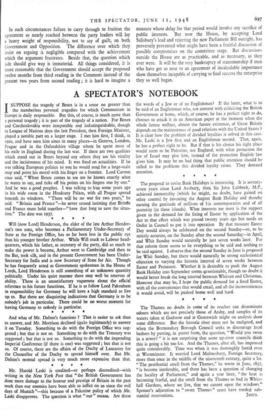A SPECTATOR'S NOTEBOOK I SUPPOSE the tragedy of Benes is in
a sense no greater than 1 the numberless personal tragedies for which Communism in Europe is daily responsible. But this, of course, is much more than a personal tragedy ; it is part of the tragedy of a nation. For Benes and Czechoslovakia were inseparable and indistinguishable, though in League of Nations days the late President, then Foreign Minister, played a notable part on a larger stage. I met him first, I think, in 192o, and have seen him since in many places—in Geneva, London, Prague and in the Oxfordshire village where he spent most of his exile in England during the last war. If there are two qualities which stand out in Benes beyond any others they are his vitality and the incisiveness of his mind. It was fixed on actualities. If he was talking European politics to you he would send for a large-scale map and point his moral with his finger on a frontier. Lord Curzon once said, " When Benes comes to see me he knows exactly what he wants to say, and ticks off his points on his fingers one by one." And he was a good prophet. I was talking to him some years ago in his wide room in the Hradcany Palace, with all Prague spread beneath its windows. " There will be no war for two years," he said. " Britain and France "—he never ceased insisting that Britain and France must hold together—" have that long to save the situa- tion." The date was 1937. *






























 Previous page
Previous page